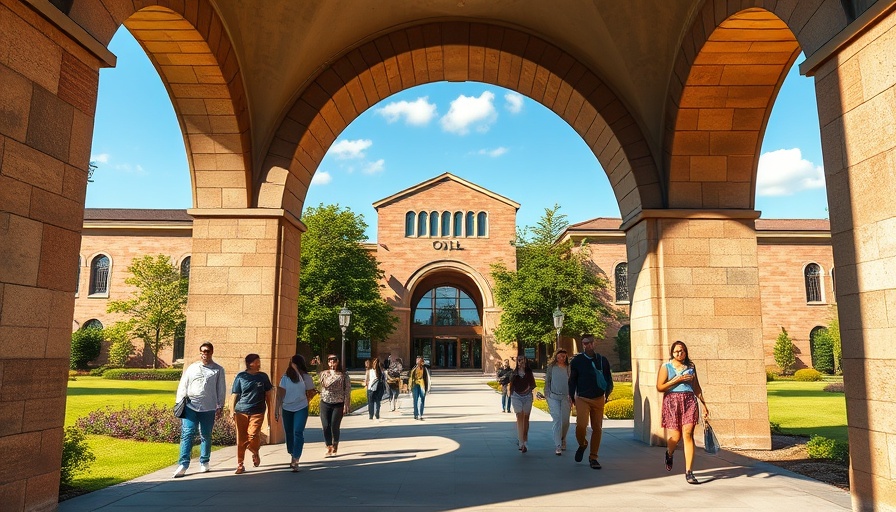
FBI Investigates Professor: A Shocking Turn of Events
Indiana University has found itself in the spotlight after the firing of Professor XiaoFeng Wang on the same day that FBI agents executed search warrants at his homes. This decision has raised eyebrows among students and faculty alike. The American Association of University Professors disclosed the termination, emphasizing that it took place without the thorough review and scrutiny expected by university policy. Wang, a prominent figure in the realm of cryptography, privacy, and cybersecurity, had been an integral part of Indiana University's Luddy School of Informatics, Computing, and Engineering for nearly 20 years.
The Fallout of Federal Investigations
As taxpayers, the implications of such incidents resonate beyond the university's walls. Federal investigations often spark inquiries into public funding and how institutions handle faculty matters, especially when it concerns government-backed research. Wang's work has been supported by various federal agencies, which adds another layer of complexity to this developing story. Furthermore, the university's choice to remove online profiles of Wang and his wife, Nianli Ma, a library systems analyst, illustrates how rapidly reputations can be affected by legal actions.
The Duty of Transparency in Higher Education
This situation poses an important question: how transparent should educational institutions be in cases like these? The university spokesperson has cited federal investigation protocols, stating they cannot disclose further details. However, as taxpayers fund such institutions, there is a growing call for accountability. Stakeholders argue that transparency can aid in rebuilding trust within the community. The balance between legal confidentiality and public right-to-know is delicate but crucial.
Next Steps and Community Response
Moving forward, the Bloomington chapter of the American Association of University Professors has formally protested Wang’s termination, calling for the university to revisit the decision. This collective response highlights not only community concern over due process but also calls for a more robust dialogue about faculty rights amid investigations.
Conclusion: A Learning Moment for Taxpayers
As this story continues to unfold, taxpayers should remain aware of the broader implications of such incidents on funding and governance in educational institutions. Ensuring transparency and fairness in faculty investigations matters not only for the individuals involved but also for the integrity of the educational system that taxpayers help sustain. Engaging in conversations about faculty rights and institutional accountability can pave the way for improvements that serve both educators and communities alike.
 Add Row
Add Row  Add
Add 




Write A Comment